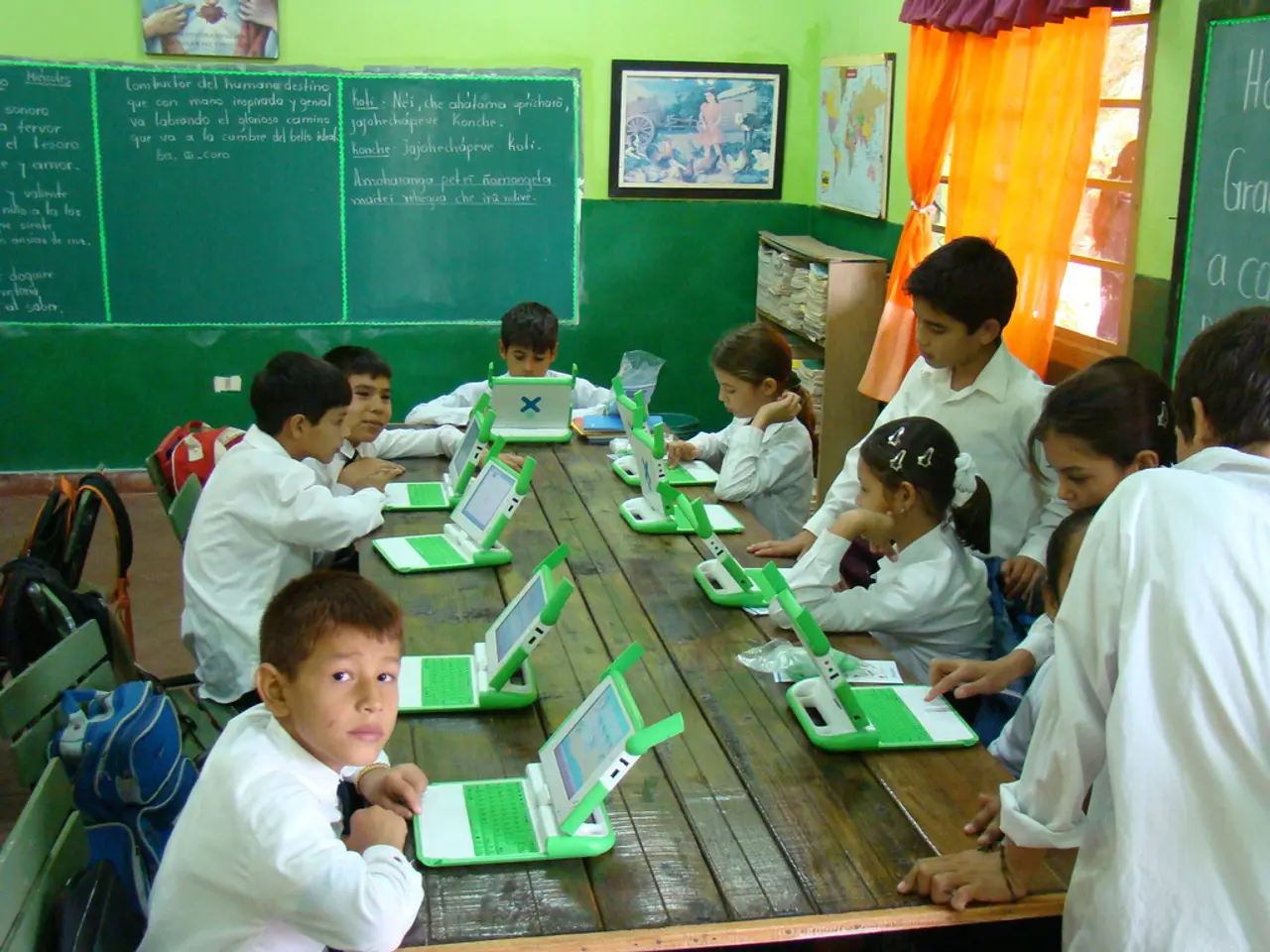Menstruation Abuse Incident at Shahapur School: Five Individuals Detained, Maharashtra Women's Commission Calls for Prompt Judgment and Therapeutic Support for Affected Pupils
The education system in Shahapur, Maharashtra, has been thrown into turmoil following a highly controversial incident at the R S Damani School. In early July 2025, girl students from Classes 5 to 10 were subjected to forced physical examinations to check for menstruation.
The incident unfolded when the principal, Madhuri Gaikwad, and some teachers called the girls to a convention hall. Using a projector, they displayed photos of bloodstains found in the school's toilets and questioned the students about their menstrual status. Those who admitted to menstruating were asked to give thumb impressions, while those who denied menstruating were taken individually to the toilet, where a female attendant forcibly checked their private parts to confirm their menstrual status[1][2][3][4].
The police swiftly registered a case under the Protection of Children from Sexual Offences (POCSO) Act against the principal, four teachers, two trustees, a sanitation worker, and the woman attendant who conducted the physical checks. The principal and the woman attendant were arrested by the police[1][2][3][4].
The incident caused widespread outrage among parents, child rights activists, and the local community. Protests erupted at the school, demanding accountability and stricter legal action. As a result, the school principal was suspended[2][4].
Rupali Chakankar, Chairperson of the State Women's Commission, visited Shahapur to gather information regarding the ongoing investigation. She advised the administration to ensure all affected girls receive counseling from the Child Welfare Committee and to expedite the probe, promptly filing a chargesheet[1]. Chakankar also called for a meeting with parents and the Education Department to understand parental complaints and conduct a thorough investigation[1].
Authorities are continuing to investigate the roles of all staff members involved and the exact nature of the violations. Police are questioning the accused and gathering evidence based on the complaints filed by parents and students[1].
The Education Officer found several serious irregularities at the school, including the absence of a Complaint Redressal Committee and the "Sakhi Savitri Committee" existing only as a register entry[1]. In response, the Education Officer sent a proposal to the Education Department to revoke the school's recognition[1].
However, Rupali Chakankar clarified that the school's de-recognition could negatively impact the children's education, so instructions have been given to the Education Officer to initiate steps for the school to resume operations independently starting Monday[1].
The case has drawn significant media attention and sparked discussions on the violation of child rights and the need for sensitization regarding menstruation and privacy in schools across India[1][2][3][4]. Parents are demanding that two other trustees also be implicated, citing alleged past incidents[1]. Five people, including the school principal, have been arrested and remanded to police custody until July 15[1].
The ongoing investigation and legal action have left the community in Shahapur on edge, with many questioning the school's policies and the actions of its staff. The incident serves as a stark reminder of the importance of protecting children's rights and ensuring their safety in educational institutions.
[1] The Indian Express [2] Hindustan Times [3] NDTV [4] Times of India
- The education system in India is facing increased scrutiny, with the high-profile case in Shahapur, Maharashtra, highlighting the need for sensitization on health-and-wellness issues, including menstruation, in schools.
- The incident at the R S Damani School, involving forced physical examinations, has also brought crime-and-justice issues, such as violations of child rights and privacy, to the forefront of general-news discussions.
- Mental-health professionals are increasingly emphasizing the importance of education-and-self-development in promoting a healthy and safe environment for students, particularly in light of the distressing events in Shahapur.
- The Shahapur case underscores the importance of a comprehensive education system that includes not just academic instruction but also focuses on aspects such as crime-and-justice, mental-health, and health-and-wellness, to create well-rounded, empowered citizens.




